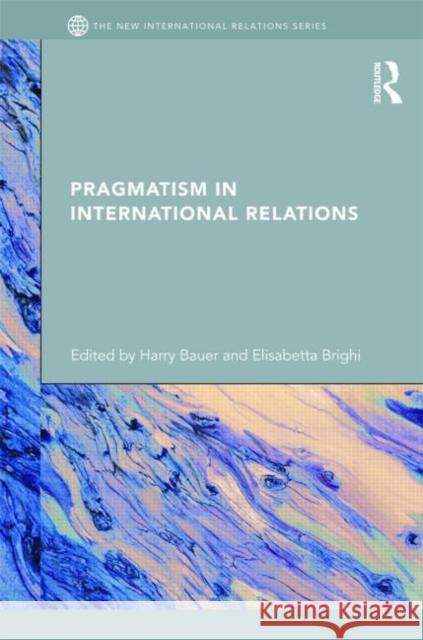Pragmatism in International Relations » książka
Pragmatism in International Relations
ISBN-13: 9780415436151 / Angielski / Twarda / 2008 / 208 str.
Pragmatism in International Relations
ISBN-13: 9780415436151 / Angielski / Twarda / 2008 / 208 str.
(netto: 741,76 VAT: 5%)
Najniższa cena z 30 dni: 705,23
ok. 16-18 dni roboczych.
Darmowa dostawa!
This collection of essays introduces pragmatism to the study of international relations and evaluates its potential for the theory and practice of global politics. Seeking to reorient the discipline of International Relations (IR) towards practices and problematic situations, the editors of this volume draw on the pragmatist tradition to provide critical inspiration for this task. Their book, organised into four distinct parts, aims to outline the potential of pragmatism to reconstruct IR. Through such an approach this volume seeks to re-invigorate the discipline and bridge the gap between IR academic communities in the US, UK, and continental Europe. This pioneering volume provides:
- the first book-length evaluation of the potential pragmatism holds for the practice as well as the epistemological, theoretical and normative debates within the discipline of IR
- theoretical reflections and empirical studies in the area of diplomacy, international law, public (environmental) policy and the Arab-Israeli conflict
- highly original contributions by prominent scholars in the field of IR, International Law, Sociology and Social Theory
The renaissance of Pragmatism and a more general turn to the study of practices which many branches of the Social Sciences have witnessed in recent years has gone virtually unacknowledged in the field of International Relations (IR) so far. Such a move could have a significant potential for IR. What Pragmatism can offer to IR is no less than a new creativity and imagination in thinking about what the discipline is and, perhaps, should be.
This volume offers the first comprehensive account of Pragmatism in IR. The volume will be divided into five parts to evaluate the main implications of a Pragmatist turn for three major dimensions of IR—theory, research and ethics. After a brief introduction in Part I, Part II will explore not only the link between Pragmatism and the (American) origins of IR theory, but will illustrate how Pragmatism can yet again present timely challenges to the discipline and its dominating paradigms, such as Realism or Constructivism. Part III will investigate what a Pragmatist epistemology and methodology would imply for the conduct of research in IR, and will present examples of a Pragmatist inquiry in the fields of history and foreign policy. Part IV will address the social and normative significance of Pragmatism for IR via a re-assessment of the central debates in international political theory as well as through a discussion of the role of international institutions and international law. Part V will conclude the volume with a critical examination of Pragmatism in IR and some prospective and Pragmatist considerations on the future of the discipline.
This book will be of interest students and scholars of international relations, politics and International relations theory.











